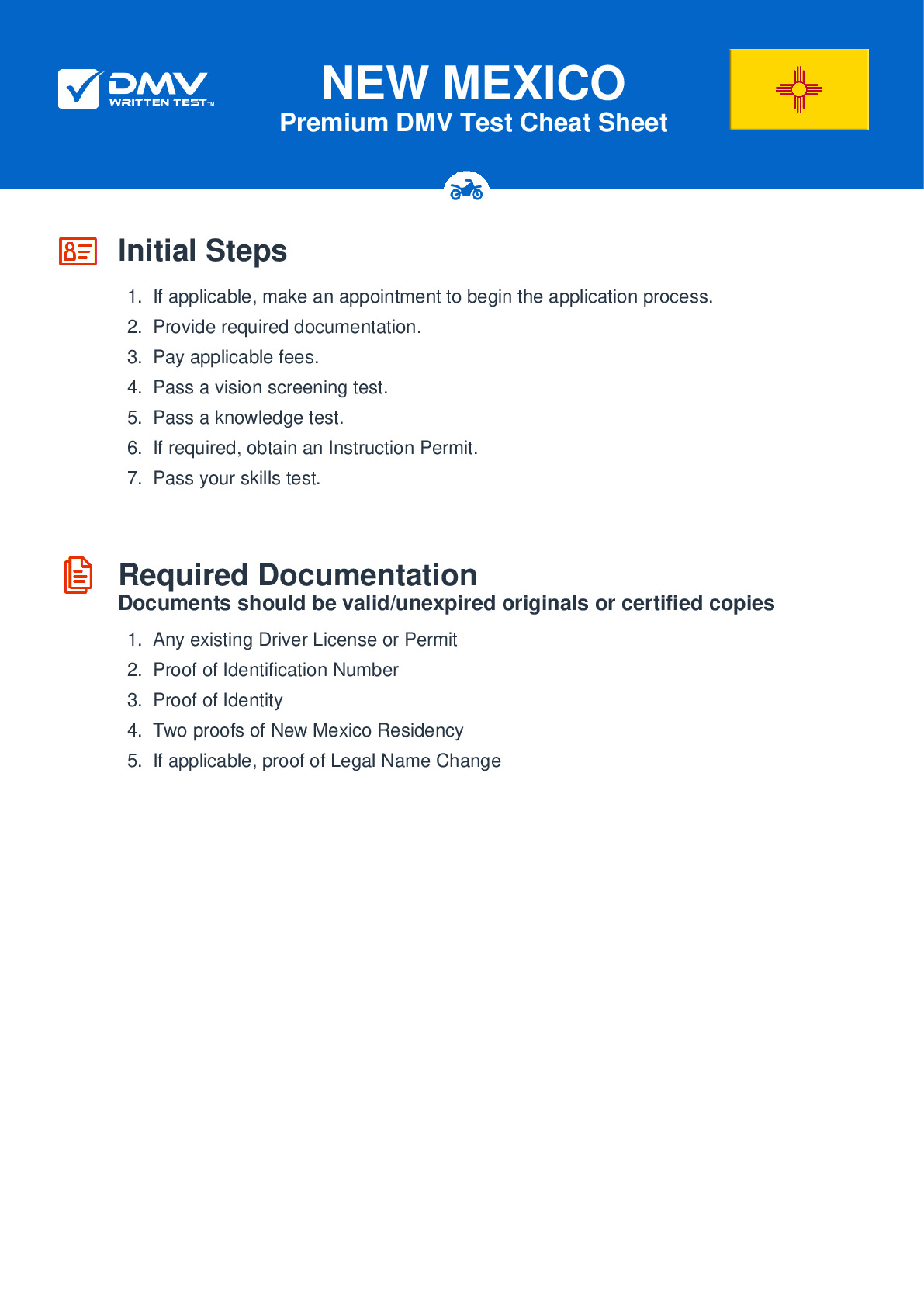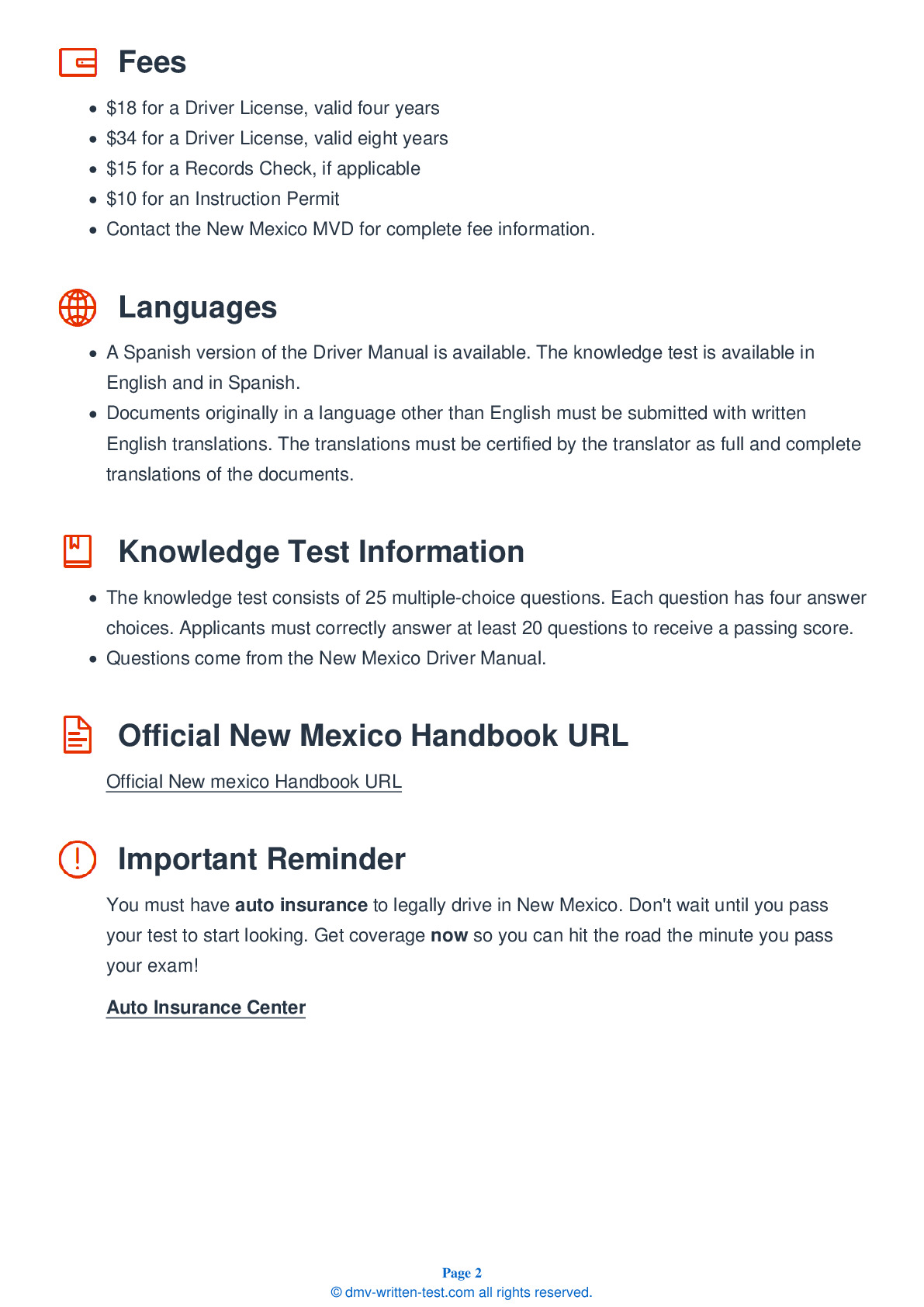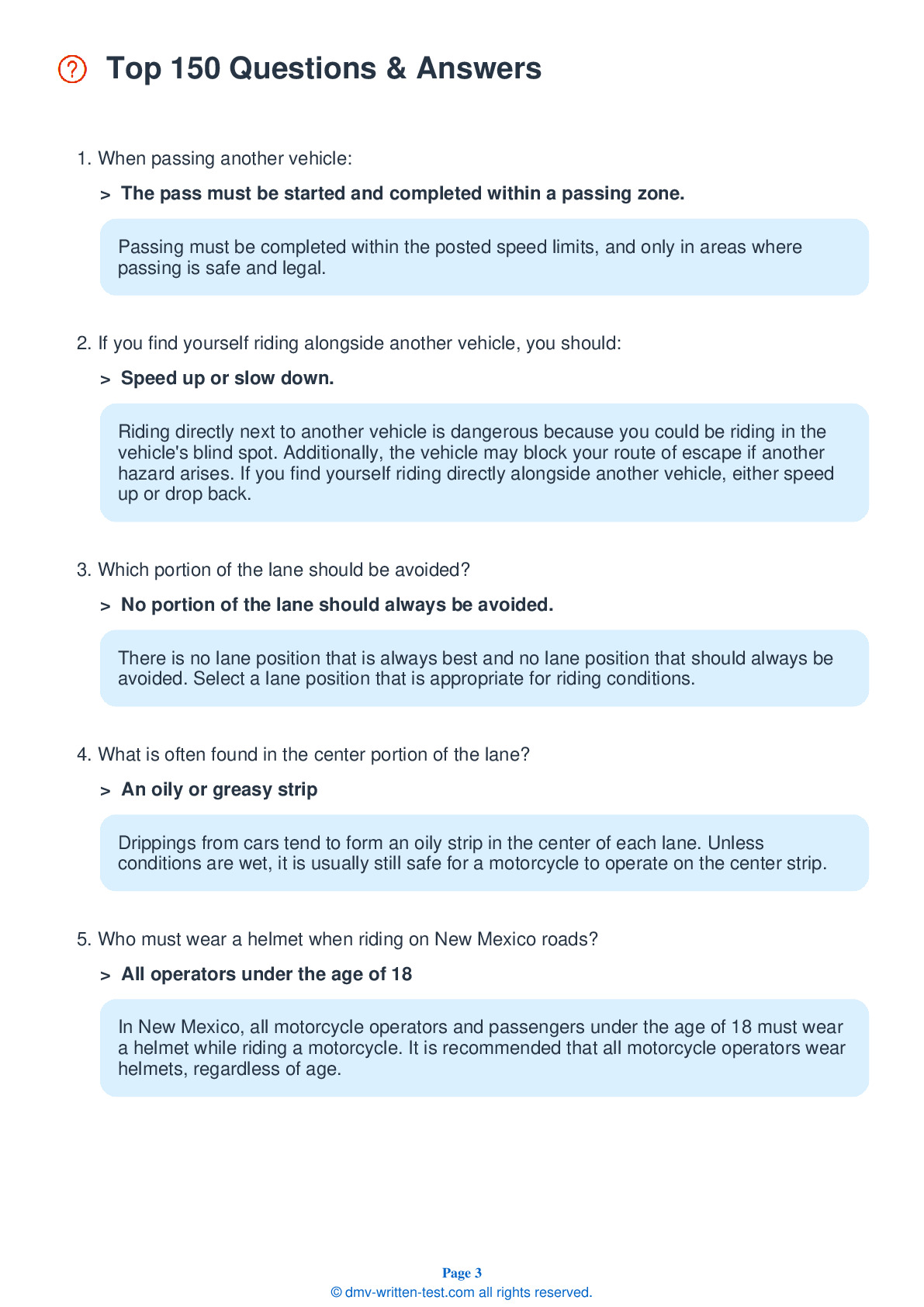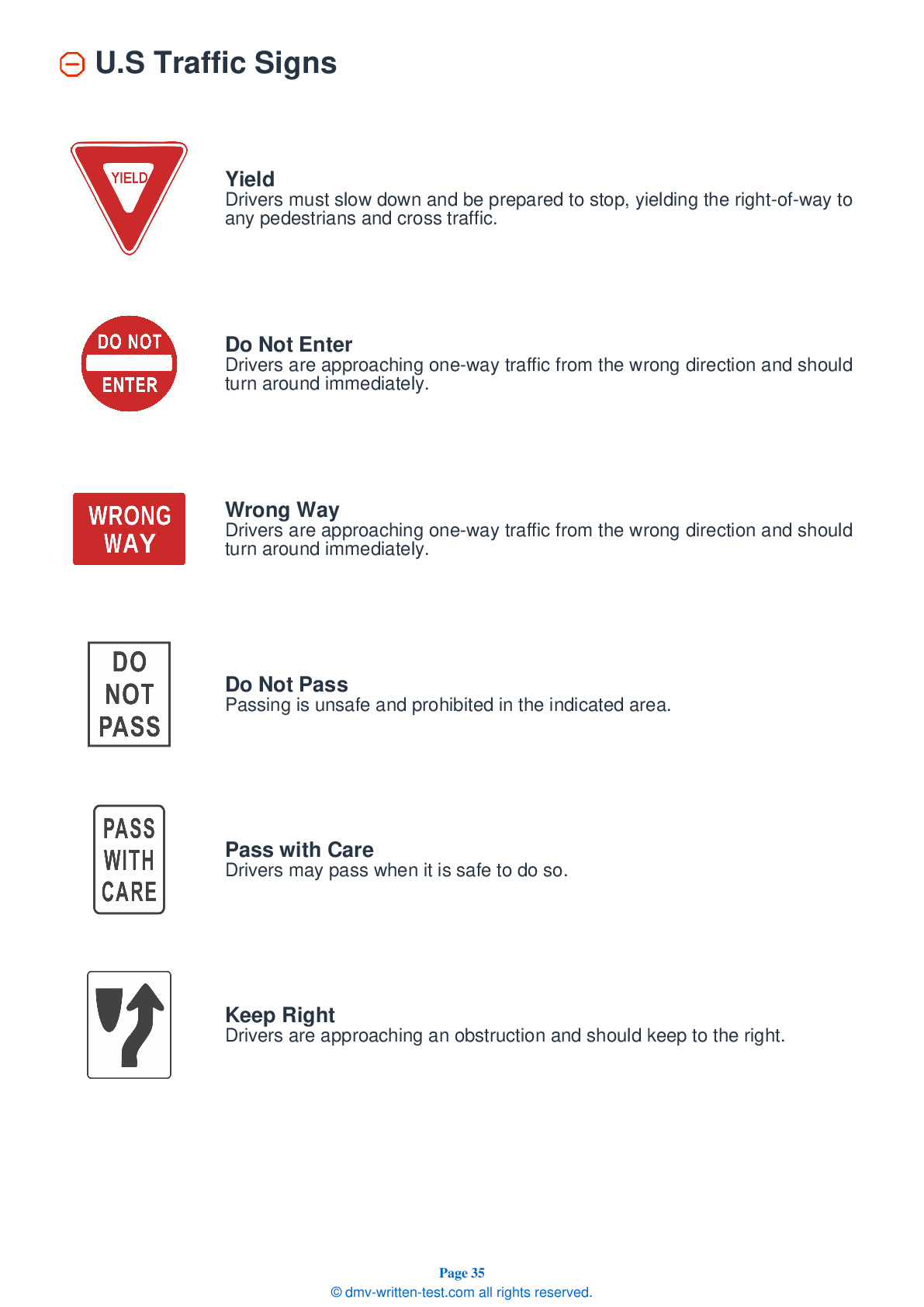2025 New Mexico Motorcycle Permit Test 10
The following questions are from real DMV written motorcycle permit tests. These are some of the actual permit questions you will face in New Mexico when getting your motorcycle learners permit. Each motorcycle theory practice test question has three answer choices. Select one answer for each question and select "grade this section." You can find this button at the bottom of the drivers license quiz. For a complete list of questions and answers for New Mexico please visit https://cheat-sheets.dmv-written-test.com/en/new-mexico/motorcycle.
Number of Tests
Number of Question
Passing Score
1. When riding behind a car, you should:
Explanation
When riding behind a car, you should position yourself so you can be seen in the other driver's rearview mirror. Riding in the center portion of the lane will generally ensure that you will appear in the middle of their rearview mirror, where the driver is most likely to notice you.
2. When passing another vehicle:
Explanation
All passes must be completed within the posted speed limits and only in areas where passing is permitted.
3. A wobble, or shaking of the front wheel and handlebars, may be caused by:
Explanation
Most wobbles are caused by improper loading of the motorcycle, unsuitable accessories, or incorrect tire pressure.
4. Before changing lanes, you should:
Explanation
Motorcycles have blind spots, just like any other vehicle. You should always turn your head to check for traffic in your blind spot before changing lanes. Do not rely on your mirrors alone.
5. Passengers should:
Explanation
Passengers should sit directly behind the operator and lean as the operator leans. They should sit as far forward as they can without crowding the operator, holding onto the operator's waist, hips, or belt.
6. Impairment from drinking alcohol occurs:
Explanation




